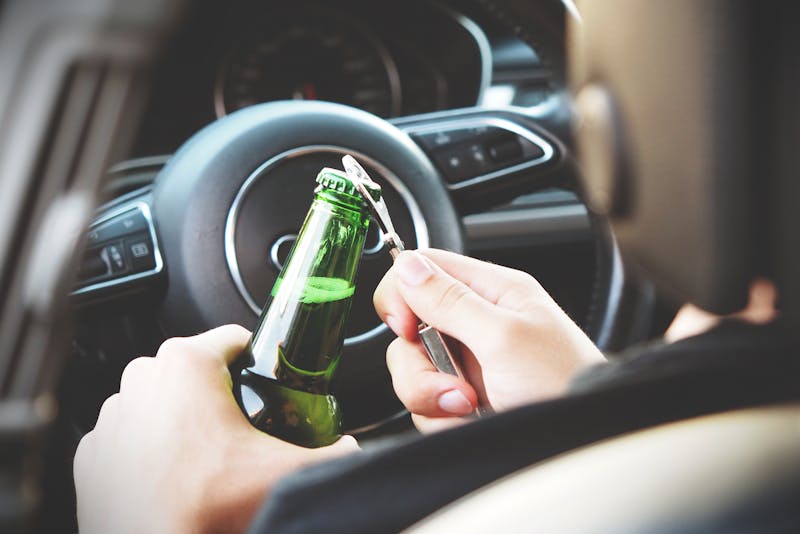Nevada DUI Laws & Penalties: What You Need to Know in 2025

In our years representing clients facing DUI charges, we’ve seen firsthand the destruction caused by drunk driving. Beyond endangering lives, a DUI conviction can derail careers, strain relationships, and lead to serious legal consequences.
This article aims to inform Nevadans about current DUI laws and trends. By understanding the legal landscape and risks, we hope to empower readers to make responsible choices and help prevent drunk driving accidents.
We’ll cover critical topics like:
- DUI penalties in Nevada.
- Latest statistics and demographics.
- Ways to prevent drunk driving.
- Support for those struggling with alcohol.
Let’s get started.
Nevada’s DUI Laws: An Overview of Conviction and Sentencing
Under Nevada Revised Statutes Chapter 484C (NRS 484C), it’s illegal to drive with a blood alcohol concentration (BAC) of .08% or higher, .04% for commercial drivers, and .02% for drivers under 21 years of age.
Harsher penalties apply at higher BAC levels. Those caught driving impaired face fines, license suspension, alcohol education, community service, and even jail time.
Penalties increase significantly for second and third DUI offenses committed within seven years under NRS 484C.400. Additional factors like excessive speeding, accidents, injuries, or deaths can also increase sentences.
First DUI Offense
The state will typically charge a first drunk driving offense as a misdemeanor. Penalties include:
- Two days to six months in jail.
- Or 48 to 96 hours of community service.
- Fines of $400 to $1,000.
- Victim impact panel.
- License suspension for 185 days.
- DUI School.
Fines and jail time escalate if the driver’s BAC exceeds 0.18%.
Second DUI Offense
A second DUI offense within seven years is also a misdemeanor, carrying:
- Minimum of 10 days to 6 months in jail.
- Fines of $750 to $1,000 (usually $1000).
- License revocation for one year.
- DUI School.
- Victim impact panel.
- Possibly an ignition interlock device.
The court calculates the seven years prior to the current arrest date.
Third DUI Offense (Felony)
A third DUI offense within seven years is a category B felony. Possible penalties now include:
- 1 to 5 years in Nevada State prison.
- Fines of $2,000 to $5,000.
- License revocation for three years.
- Alcohol or drug dependency evaluation.
- Victim impact panel.
- An ignition interlock device.
DUI laws aim to deter drunk driving and punish those who recklessly endanger lives. But even first offenses bear harsh penalties that can drastically impact one’s future.
Understanding DUI Arrest Statistics and Trends
Nevada’s strict DUI legislation, coupled with public awareness campaigns, has helped reduce drunk driving rates over the past decade. According to responsibility.org, Nevada law enforcement made over 11,170 DUI arrests in 2019 – an average of over 30 per day.
The demographics of fatality rates have also shifted. Historically, drunk drivers cause many deaths in the state, but recent DUI data shows those numbers are declining.
These statistics tell us our work is making headway, but issues persist. Continued legal counsel and education remain vital for reducing accidents and saving lives.
The Rising Concern of Drugged Driving
While alcohol remains the most common DUI substance, drugged driving cases have risen sharply statewide. Many arrests now involve drivers impaired by substances like marijuana, cocaine, methamphetamines, or prescription medications.
Challenges vs. Alcohol DUIs
Drug DUIs prove more complex than alcohol cases. No clear legal limits exist for the wide range of intoxicating compounds. Drivers often mix various substances, making it difficult to parse out impairment causality.
And unlike alcohol, no roadside devices currently exist to screen for drugs efficiently. Instead, officers use special training to spot signs of intoxication. They must collect blood samples and pursue lengthier lab testing to confirm illegal substances.
Penalties for Drugged Driving
Despite added complexity, Nevada laws still forbid driving under the influence of a controlled substance. Those exhibiting impaired coordination, reflexes, focus, or judgment face DUI charges and revocation of their license.
Penalties closely match those for alcohol DUIs based on factors like repeat offenses or causing injuries or death. Those found severely impaired also receive court orders to attend substance abuse treatment.
Responding to Rising Drugged DUIs
Nevada criminal defense attorneys are taking on more drugged driving cases after seeing caseloads rise. The complexities of proving impairment and sentencing match those of alcohol DUI cases. Defense lawyers aim to ensure fair treatment for clients facing allegations, fines, license suspension, and custody.
Ways Nevada Is Trying to Prevent Drunk Driving
Regrettably, drunk driving still claims too many lives, so ongoing prevention is critical. Programs statewide aim to curb dangerous behavior through:
Designated Drivers
Designated driver campaigns encourage groups to select one sober driver when going out. Local partnerships between hospitality and transportation sectors help facilitate rides to prevent impaired driving.
Ride Sharing
Services like Lyft and Uber provide readily available, affordable rides home as an alternative to driving drunk. Nevada law also protects ride-share drivers from drunk passengers who cause harm.
Advocacy Groups
Organizations like Mothers Against Drunk Driving (MADD) run public awareness campaigns on the fatal consequences of DUIs. They also provide support resources for victims of drunk driving accidents and their families.
Law Enforcement Patrols
Many local police departments have set up dedicated DUI enforcement units and sobriety checkpoints to catch and deter drunk drivers. Some even display parked squad cars on weekends to give the impression of omnipresence.
Through multiple reinforcement channels, Nevada continues applying pressure to curb DUIs and drunk driving fatalities.
Support and Treatment Programs For Those Struggling With Alcohol
For some, alcohol abuse cascades into unhealthy addiction and patterns of dangerous decision-making. Recognizing risks early and seeking help can prevent tragic outcomes.
Health Risks and Warning Signs
Long-term excessive alcohol use boosts risks for liver disease, cancers, mental illness, and cognitive decline. Those noticing increased tolerance, withdrawal symptoms, failed attempts to cut back, or that drinking harms relationships or work should consider treatment.
Finding Treatment Facilities
Nevada offers outpatient programs and residential recovery centers to help people regain control of their lives. The State Department of Health and Human Services provides referrals to accredited facilities.
Popular options include:
- Spring Mountain Treatment Center
- New Beginnings Counseling Centers
- Montevista Hospital
- Support Groups
Peer communities like Alcoholics Anonymous provide judgment-free support. Members share struggles and tactics to maintain their recovery. Groups meet locally across Nevada for those needing camaraderie through the healing process.
Many options exist statewide to get confidential care for anyone concerned about their drinking. Lives stand to improve drastically through proactively addressing addiction’s hold.
Nevada DUI Lawyers Can Help
If you or a loved one face DUI charges, experienced legal representation can prove invaluable. Nevada criminal defense attorneys understand the complexities of old and newly emerging intoxicant laws. We keep abreast of enforcement approaches and evolving court precedents that impact outcomes.
We analyze arrest details, chemical testing, and officer conduct in building strong cases. Masterful negotiation skills also aim to minimize penalties by securing plea bargains for lesser charges.
Throughout the proceedings, Benjamin Durham Law Firm provides compassionate counsel to clients’ families. By leveraging broad experience, our criminal defense lawyers maximize prospects for lenient verdicts.
So don’t hesitate—contact us for discreet consultation on pending or prior driving impairment charges.



